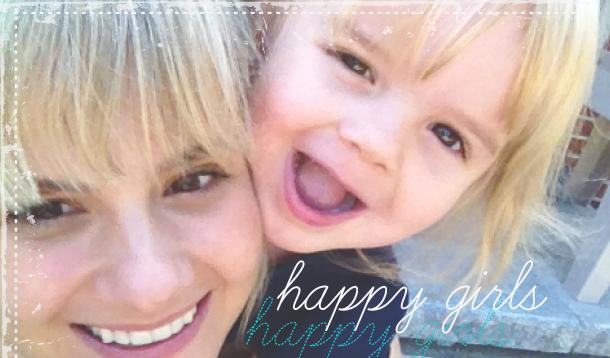
How do you know if your toddler is stressed, and how do you deal with it? I have been trying to figure this out myself. Actually, I have been totally stressing over it.
I’m in the middle of separating from my husband.
I have a toddler—a bright, beautiful, 2.5 year old—who loves her dad, loves her mom and, unsurprisingly, has none of the vocabulary necessary to express her feelings with regard to separation. Considering the fact that Hubs and I barely have the right vernacular either, why are we even surprised? But there it is...
I’m super lucky. We’re working through things amicably, but even then there are moments of stress, times when our silence speaks louder than any argument.
We both watch Baby Girl like a hawk, cross-referencing with each other, trying to keep our issues off her radar.
We make sure that we have family time, even if we’re not together anymore. We have a family dinner night. We have a ‘day at the office’ each week. We are never unkind, never mean to each other. It doesn’t matter.
Our Baby Girl knows something is up.
Her bedtime has migrated from 7pm to at times, almost 9:30pm. Ok who am I kidding. By the time she finishes crying sometimes, it’s 11pm.
She has stopped being outgoing on the playground or in social situations.
Her appetite has dropped.
She is ‘mommyish’ and ‘daddyish’ — she takes turns picking favourites.
She wakes up multiple times a night, asking for warm milk—something she only used to do at 14 months.
She tests boundaries, she says her tummy hurts, she doesn’t listen.
But at the same time, she’s only two years old.
I mean, am I reading way into things? Isn’t a lot of this typical toddler behavior?
Yes.
And no.
I mean, every toddler is under stress. I’m not an expert by the way, I’m fully assuming this, but toddlers are like mini-revolutionaries bursting at the seams...right?
They are exercising their newfound bipedal independence. They can finally say NO with gusto. They can ask questions like ‘why’ and blatantly do the opposite of what you have asked them a gazillion times. So what the heck are you supposed to watch for if you and your spouse are in a stressful event in your lives? What’s an anomaly and what’s par for the course?
I still have no idea.
Here’s a massive comfort though. Even if you’re not sure what’s normal and what’s an indication that you’re baby is stressing, you can still be proactive.
Here are three things you can actively do with your toddler alone and as a team with your partner, even if you’re going through something as life-altering as a separation or divorce.
Self-expression is key to recognizing and managing stress. Even toddlers can find ways to relieve stress—through play therapy, dress-up, crafts, dancing, and more. You and your partner can help toddlers as young as two or three to express their needs, beliefs, and feelings.
Bonus? Display your children’s work or photos of their creative adventures on a feature wall. This will not only acknowledge their accomplishments, but also help validate their feelings.
Physical activity is great way for your toddlers to manage stress no matter how old they are, and no matter what their skill level is. By encouraging them to play sports, swim, dance, run around, or play; you are encouraging them to channel their stress into an activity that might make them feel excited, happy, accomplished, and refreshed. Even better? If you get active with them.
Make time for your children together with your spouse, or alone. If you’re not sure what’s right for your situation, contact a couples’ therapist or speak to your mediator or legal advisor. Setting aside time to enjoy a family day, reading a book together, volunteering, or just hanging out, hugging, and connecting can be a huge stress-relief for your toddler. It reaffirms closeness and security, encourages personal development, and creates opportunities for communication that can help alleviate stress and encourage openness.
In any case, be attentive and seek professional help if:
![]() Stress is interfering in your child’s life, stopping him from doing the things that are important
Stress is interfering in your child’s life, stopping him from doing the things that are important
![]() Your child is constantly seeking reassurance—even for tasks and skills that he or she already has demonstrated confidence in
Your child is constantly seeking reassurance—even for tasks and skills that he or she already has demonstrated confidence in
![]() You feel that your child is not coping well with daily stressors
You feel that your child is not coping well with daily stressors
For more tips about how parents can deal with stress and their kids? Check this awesome guide out.
The most important thing? Breathe.
And Stay Positive.
Xox Kat

This is proudly sponsored by our friends at Pfizer Canada.
Created by the Psychology Foundation of Canada in collaboration with Pfizer Canada, Stress Lessons is a free resource designed to help you teach children how to manage stress today, and for the rest of their lives.
www.morethanmedication.ca/en/stress_lessons